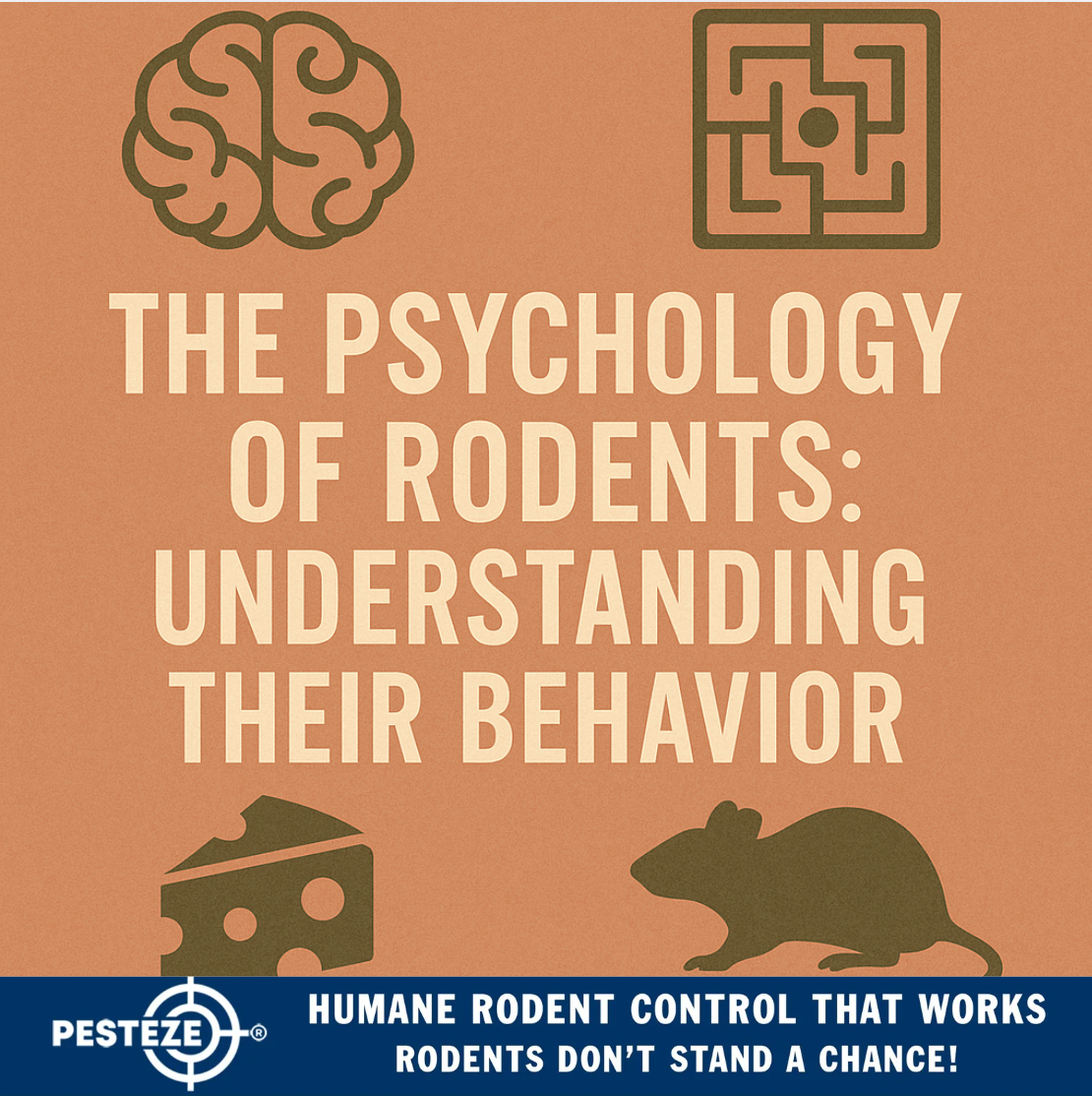THE PSYCHOLOGY OF RODENTS: UNDERSTANDING THEIR BEHAVIOR

THE PSYCHOLOGY OF RODENTS: UNDERSTANDING THEIR BEHAVIOR
SUMMARY
Rodents aren’t just pests—they are intelligent, adaptable creatures with complex behaviors. This guide explores the psychology of rodents, helping you understand their instincts, habits, and decision-making to improve prevention and control.
FEATURES
-
Survival Instincts: Driven by food, water, and shelter needs.
-
Exploratory Behavior: Constantly investigating new spaces.
-
Social Dynamics: Mice and rats thrive in groups with hierarchy.
-
Fear & Avoidance: Rodents adapt quickly to threats and traps.
-
Learning & Memory: Excellent navigators with strong recall.
-
Adaptability: Evolve behaviors based on environment and pressure.
DESCRIPTION
Rodents are among the most successful mammals on Earth, largely because of their intelligence and adaptability. To effectively manage or prevent infestations, it’s important to understand the psychology behind their behavior. Their actions are not random—they are guided by survival instincts, social interactions, and learned experiences.
At the core of rodent psychology is survival behavior. Food, water, and shelter drive nearly all of their decisions. They are opportunistic feeders, eating whatever is available, and they prefer warm, hidden spaces for nesting. These instincts explain why pantries, attics, and basements are common infestation sites.
Rodents are also naturally exploratory. Mice and rats constantly investigate new areas, leaving behind scent trails to navigate. This curiosity allows them to find new food sources and entry points quickly. It also makes them skilled at exploiting even the smallest vulnerabilities in a home or building.
Their social structure plays a major role in infestations. While mice may live in smaller groups, rats often form complex hierarchies. Dominant rodents secure better nesting sites and food access, while subordinates follow. This dynamic means once a few rodents enter a space, others often follow.
Fear and avoidance are equally critical. Rodents are cautious of new objects in their environment, a trait known as neophobia. This is why traps sometimes don’t work immediately—rodents may avoid them until they feel safe. Over time, however, they adapt, learning which areas or objects are dangerous and adjusting their behavior accordingly.
Learning and memory are strong in rodents. They can recall routes through mazes, remember food sources, and adapt to changing conditions. Their spatial awareness and memory allow them to evade capture and return to familiar sites long after being removed.
Finally, rodents are masters of adaptability. They evolve quickly in response to human activity, changes in food availability, and even climate shifts. This adaptability explains their persistence in urban environments where other animals struggle.
By understanding the psychology of rodents—their survival instincts, learning abilities, and adaptive behaviors—you can anticipate their actions. This insight allows homeowners and businesses to develop more effective prevention and control strategies that stay one step ahead of these clever creatures.
- Saharsh Bansal


Comments 0